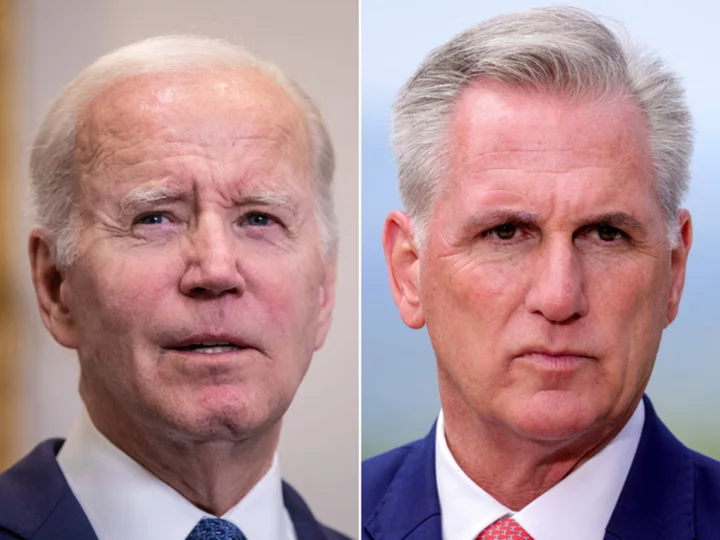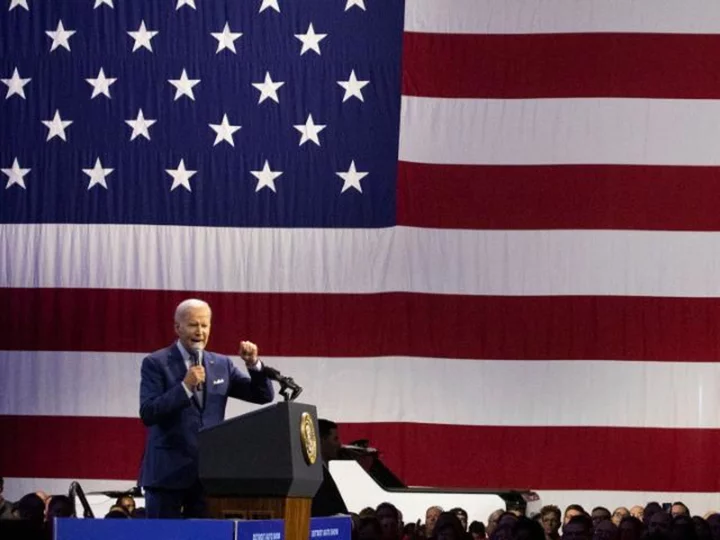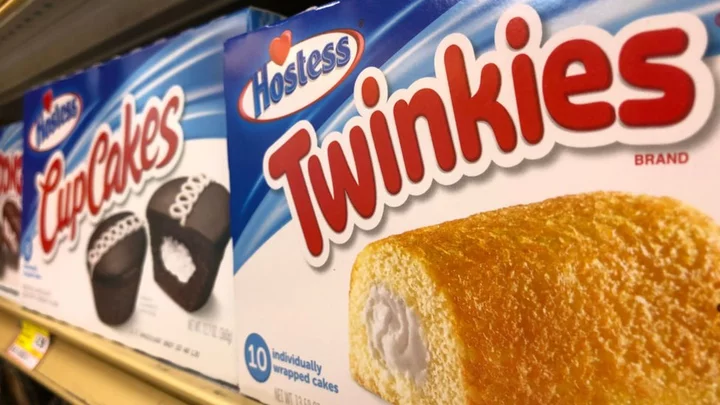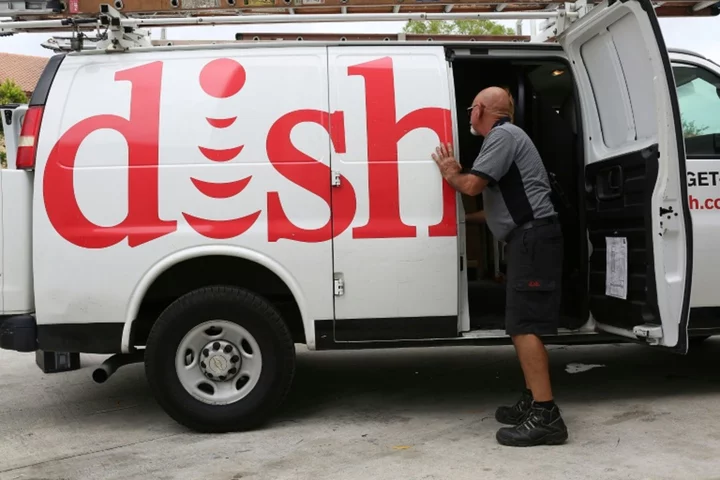President Joe Biden and House Speaker Kevin McCarthy convinced themselves of a compromise deal to slow federal spending and replenish the near-empty treasury with borrowed cash.
Now they have the even harder task of trying to convince everyone else to swallow what one Republican, Rep. Chip Roy of Texas, described as a "turd sandwich."
Frustrated hardline Republican spending hawks like Roy believe McCarthy secretly agreed to give them the power to stop any legislation they don't like from getting a vote on the House floor. McCarthy's allies have a different recollection.
The hardliners spent Memorial Day picking apart the 99-page text of the debt ceiling bill line by line and openly wondering how McCarthy could not get more concessions and cuts than two years of caps on non-defense discretionary spending in exchange for taking the debt ceiling off the negotiating table for two years.
Read: Debt limit bill text
And the concerns extend to the opposite end of the political spectrum, with liberal House Democrats frustrated with Biden's dealmaking. But the same arguments Biden could use to mollify progressives will turn off Republicans -- underscoring the challenges that Washington's top negotiators face in selling this compromise to their respective parties' far-left and far-right flanks.
First test on Tuesday
The bill faces a gauntlet of votes starting Tuesday, when it goes before the powerful House Rules Committee. If it can avoid roadblocks, the bill could get a final vote in the House Thursday. It could then proceed to the Senate, where it would face a new set of opponents.
Roy is one of three hardline Republicans that McCarthy allowed to sit on the committee, which controls what legislation makes it to the House floor. The panel usually serves as a rubber stamp for the speaker. Not anymore. McCarthy made that concession of giving power to the hardliners -- Roy along with Reps. Thomas Massie of Kentucky and Ralph Norman of South Carolina -- back in January when he was trying to secure support to become speaker.
Roy and Norman, both members of the House Freedom Caucus, have both publicly dismissed the debt deal, but Massie has not offered a public opinion.
What power did McCarthy give the Freedom Caucus?
A separate complication is that Roy believes McCarthy also agreed back in January to a handshake deal that the three hardliners could block anything they don't like from advancing to the full House and that any one of them could scuttle a rule.
"A reminder that during Speaker negotiations to build the coalition that it was explicit both that nothing would pass Rules Committee without AT LEAST 7 GOP votes - AND that the Committee would not allow reporting out rules without unanimous Republican votes," Roy tweeted.
The second part of Roy's assertion -- that any single Republican could block legislation in the Rules Committee -- came as a surprise to some Republicans and was denied by senior GOP sources, according to CNN's Capitol Hill team.
If McCarthy's allies on the panel violate the terms of his perceived agreement with the hardliners and send the debt bill to the full house, it could potentially incite a revolt among Freedom Caucus members and jeopardize his tenuous hold on the speaker's gavel. (Remember another concession McCarthy made to secure the gavel in January -- any single member could bring a vote to oust the speaker.) Much depends on whether Massie will support the debt deal or join Roy and Norman in trashing it.
Norman told CNN that he would vote against the rule unless major changes are made to the bipartisan deal. The list of six demands he included in a text message over the weekend makes it seem like he will oppose any bill Democrats could support.
"Bottom line, if the debt limit is raised above the 1.5 level, and if the timeline extends to 2025, IF the student loan payout is still intact, if the IRS agent funding is still there, if the provisions in the IRA is still intact, if the work requirement EXCLUDES MEDICAID, I will vote against the rule," he said over the weekend.
Related: Here's what's in the debt ceiling deal
Biden team: Pay attention to what isn't being cut, please
Republicans believe they are pushing toward 150 House GOP votes or more, two sources told CNN on Monday. But the fact that multiple Republicans are likely to oppose any debt deal means it likely cannot pass without help from Democrats.
White House officials defended the deal in calls with Democrats, encouraging them to focus on what was saved from the chopping block rather than the relatively modest cuts that would be enacted. And they got a positive sign on Monday when the chair of the moderate New Democrat Coalition came out in support of the bill.
But some Democrats were expressing annoyance Sunday that the White House agreed to negotiate with McCarthy using the borrowing limit as leverage.
Speaking to CNN's Jake Tapper on "State of the Union" -- before the legislative text was released -- Congressional Progressive Caucus Chair Pramila Jayapal said the White House should be worried about progressives ultimately turning against the bill.
The Washington state Democrat and others were angry that while Biden was able to keep a proposal for federal work requirements for people to qualify for Medicaid coverage out of the bill, he did allow for temporary new work requirements for certain people who get food assistance from the government. The bill, however, would also expand exemptions from those requirements for veterans, people who are homeless and former foster youth.
Asked on Monday if he could get progressives on board, Biden said, "I don't know."
"I have a good relationship with Jayapal. I haven't had a chance to speak with her yet," he added, speaking from the White House before departing for Delaware.
There's not much time for debating individual points. For an idea of how short the US government currently is, consider that there are multiple billionaires who currently have more cash than the US Treasury. With payments coming due in early June, the latest projected X date -- when the US would not be able to meet all of its obligations -- is June 5.









